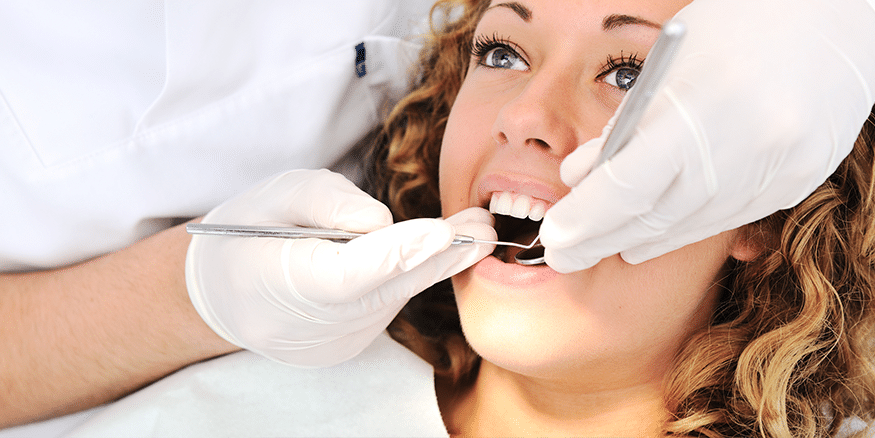
GERD and Dental Erosion
Gastroesophageal reflux disease (GERD) occurs when the upper portion of the digestive tract doesn’t function properly, causing stomach contents to regularly flow back into the esophagus, sometimes going all the way up into the mouth. This disease affects 13-29% of Canadians. While the most common symptom of GERD is heartburn, in certain individuals the first sign that they are experiencing this disease can be dental erosion that becomes apparent during a routine dental examination.
Dental erosion is also common in individuals who have a high intake of acidic foods, or repeated vomiting from GI problems or eating disorders. Dental erosion is not the same as the breaking down of carbohydrates by bacteria into acidic components, which is what causes tooth decay and dental caries (cavities).
Dental erosion originates at the enamel, which is the durable, protective coating over our teeth. While tough, it is vulnerable to an overly acidic environment, in which it begins to soften and demineralise, slowly wearing down and leaving the more sensitive parts of the tooth exposed. Our saliva helps to put minerals back into the enamel after we eat acidic foods, but if there is a consistently higher acidity, as is the case with regular reflux, the saliva isn’t able to regulate the pH in the mouth and allow this process. As the enamel erodes, the teeth become discoloured and sensitive to hot, cold, and sweet foods and beverages.
While it might seem odd that reflux can do enough damage to cause dental erosion, especially if you don’t even feel the heartburn, research shows that there is a strong correlation between GERD and dental erosion. One study compared dental erosion in children aged 3 to 12 years who had GERD to children in that age group without GERD. They found that 98% of the children with GERD (53 of 54) had dental erosion, compared to 19% of the control group (11 of 58).1 Another study from Norway found that young adults with GERD were more likely to have symptoms of dental erosion than those without the disease.2 A meta-analysis published in 2013 showed that researchers have acknowledged GERD as a cause of dental erosion since 1937, and the evidence in support of this continues to grow.3
If your dentist notices unusual signs of dental erosion, your next recommended appointment might be with your family physician or gastroenterologist. Clinical evidence suggests that dietary and lifestyle modifications are usually not sufficient to bring chronic GERD under control, so it’s likely that your physician will need to prescribe some medication to help reduce the stomach acid. Fortunately, there are medications that will help keep the dental erosion under control, if used appropriately.
6 Steps to Avoiding Dental Erosion
- Receive treatment for GERD or any other medical problem that causes an increase in reflux or vomiting
- Maintain good oral hygiene by flossing and brushing regularly with fluoride-based toothpaste and a soft-bristled toothbrush; avoid brushing too vigorously
- Reduce food-related risks by eating regular meals rather than grazing throughout the day, rinsing your mouth with water after meals and waiting at least an hour before brushing your teeth
- Avoid swishing or sipping on acidic drinks, or holding them in your mouth for too long, and use straws to prevent the beverages from being in prolonged contact with your teeth
- Drink water throughout the day to combat dry mouth and keep your mouth clean
- Ask your dentist about products or diet modifications that might help re-mineralize your teeth















